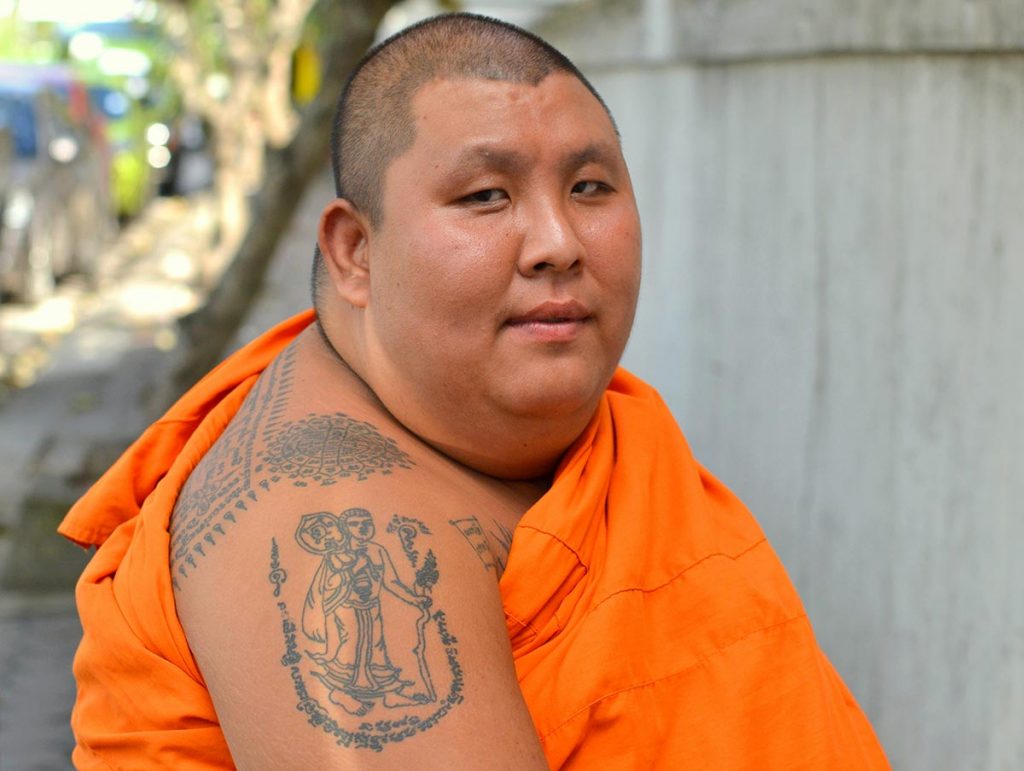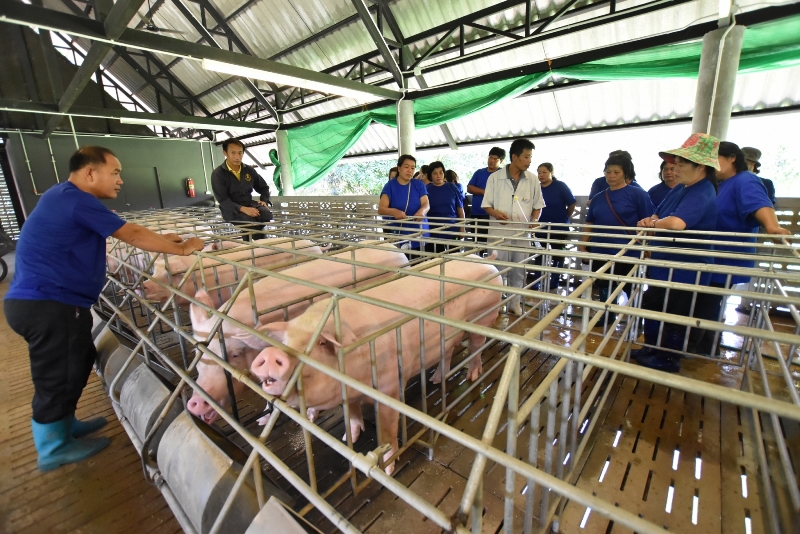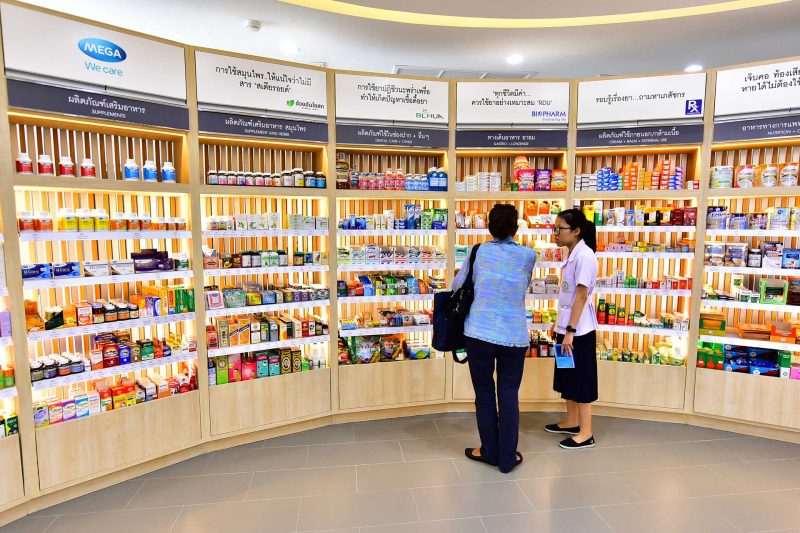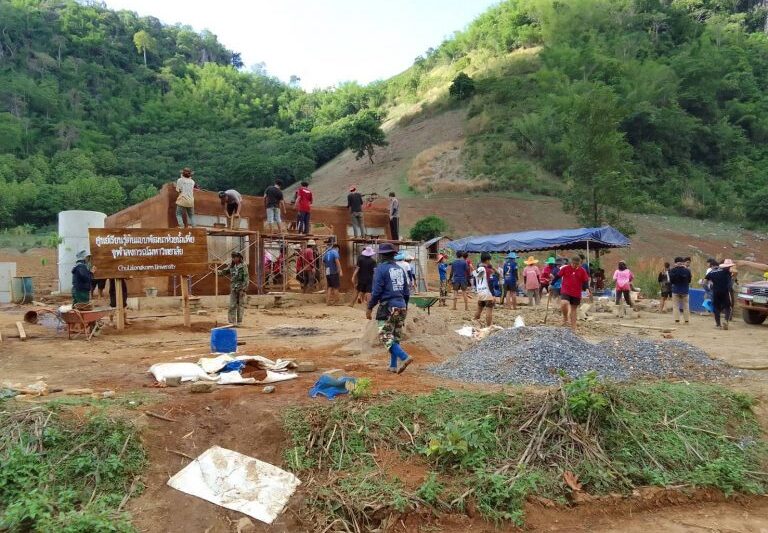Defusing ‘ticking time bomb’ of obesity in the clergy requires innovative approaches
Can one get fat while eating only one meal a day? The answer is yes. Buddhist monks in Thailand are living proof of that.
Obesity has become a major health concern not only among the general population but also, more alarmingly, among the clergy in Thailand. A study by Chulalongkorn University in 2016 found that nearly half of the country’s monks were overweight. More than 40 percent of those surveyed had high cholesterol, about one-fourth had high blood pressure and one in 10 were diabetic.
Calling the situation a “ticking time bomb”, Prof Dr Jongjit Angkatavanich of the Faculty of Allied Health Science has been working to spur public interest in monks’ health and nutrition. But defusing this bomb is not easy, she admits, as the phenomenon is closely linked to religious and cultural beliefs, coupled with changing modern lifestyles and the market environment.
There are more than 300,000 monks nationwide and millions of Buddhist devotees offer alms to them every day, part of the merit-making tradition deeply rooted in Thai culture. Monks’ diets come mainly from these offerings, so they have no choice but to consume what they are given. Amid today’s fast-paced lifestyle, it’s become more convenient for devotees to simply buy food for alms offering than to prepare it themselves. It’s no surprise that the food they get from the market is high in carbohydrates, fat, cholesterol, sugar and sodium.
Health authorities have been aware of the obesity crisis in the clergy for some time, but the lack of appropriate tools to educate monks and the general public to change their behavior has been a major obstacle to bringing about change.
The government spends a lot on public health promotion campaigns aimed at reducing non-communicable diseases, such as heart disease, cancer and diabetes, which are on the rise in the developing world as societies grow more affluent. But Prof Dr Jongjit says these campaigns cannot be directly applied with monks as they have a different lifestyle and their obesity problem has different causes.

Working in conjunction with health and religious authorities, Prof Dr Jongjit launched a Healthy Monk-Healthy Nutrition project in 2011 with funding support from the Thai Health Promotion Foundation. It has taken the lead in addressing the issue from the root causes to come up with practical and effective solutions. She emphasizes that the remedy must be easy enough to gain acceptance from monks and laymen alike, in addition to being inexpensive and easy to adopt.
Some tangible results from the project include a media kit called “4.0 Innovation for Healthy Monks”, television series and video clips to create awareness and offer sound solutions. The media kit has been tested to ensure the effectiveness of its message and has been endorsed by authorities at all levels including the Sangha Supreme Council of Thailand, the Public Health Ministry, monks and public health officials.
With strong support from the government as part of its public heath policy, the media kit is being produced and distributed to 11,000 public hospitals and temples nationwide by the end of 2019, under the One Hospital, One Temple Project.
The project also publishes recipe booklets that contain healthy and inexpensive meals that people can prepare for alms offering. It encourages monks to maintain a healthy lifestyle by incorporating some physical exercises in their routines such as walking and stretching.
Having faith in the power of mass media, the project has produced a series of television shows and video clips using an infotainment approach to get their message across. In addition to educating monks, laymen and food vendors, the program also aims to inspire people by showcasing role models and drivers of social change.
For example, one program features a model monk who talks about his endeavors to drive behavioral change and better health consciousness among the clergy themselves. Another talks to a nurse who has long been working tirelessly to improve monks’ nutritional health.
The project has also collaborated with World Buddhist TV to train its media team in production skills and content creation to produce more quality programs to promote sustainable health among monks.
All media produced by the project are available for viewing and download at http://www.sonkthaiglairok.com
Some international media coverage:
- https://www.economist.com/asia/2019/11/07/heavy-thai-monks-seek-enlightenment Heavy Thai monks seek enlightenment. November 7, 2019
- https://edition.cnn.com/2019/10/18/health/thailand-monks-vital-signs-wellness/index.html Why Thailand is putting its Buddhist monks on a diet. October 18, 2019
- https://www.nytimes.com/2018/08/12/world/asia/thailand-monks-obesity.html In Thailand, ‘Obesity in Our Monks Is a Ticking Time Bomb’. August 12, 2018
- https://time.com/4260641/thailand-buddhist-monks-food-obesity/ Thailand’s Monks Eat Too Much and Are Costing the Country Millions in Health Care. March 16, 2016
- https://www.bangkokpost.com/thailand/general/897276/almost-half-monkhood-overweight Almost half monkhood ‘overweight’. March 15, 2016
- https://www.bbc.com/news/blogs-news-from-elsewhere-35812339 Thailand’s overweight monks are put on a diet. March 15, 2016
Previous:
Next:
Others
Osotsala a Model Community Pharmacy
Pharmacists nationwide being recognised for the important role they play in the healthcare system





